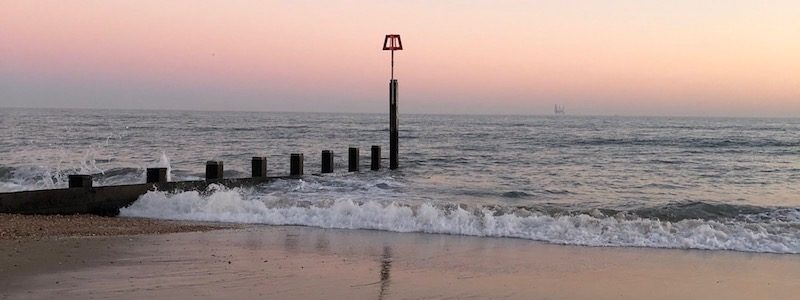Dorset’s wildlife is becoming increasingly “at risk” after oil drilling began in Poole Bay earlier this month, campaigners claim.
Angela Pooley, coordinator of the East Dorset branch of Friends of the Earth, highlighted the significant impact that the off-shore rig will inevitably have on the regions breeding seahorse population, as well as other marine life that live in Poole Bay.
The drilling extension on the oil rig until the end of March has worried residents after dead marine life was found washed up on Dorset’s shores.
“Although there’s no evidence that it’s connected, there’s been a dead dolphin and seal found on the shores in the area since it’s been there. Dorset Wildlife Trust is investigating that.” she said.
This comes after the Planning Inspectorate for England and Wales rejected plans for a wind farm in 2015 on the grounds of negative visual impact to the Jurassic Coast.
Since permission was granted by the government for drilling to begin, no further oppositions can derail the project. However, local activists don’t want the public to feel that their views about Dorset’s future cannot be heard.
“Sadly, at the moment, in regards to this particular project, I don’t think that there’s a lot that we can do. We can’t stop this happening now as it’s got permission to go through right to the end.” Angela continued. “What we can do, however, is to keep campaigning.
“There are at least four licenses that have been granted for future extraction in Dorset. What we can do is raise awareness and ensure that they don’t go ahead and that they don’t happen in the future.”
With decisions regarding extraction coming from a national level, there is an emphasis for constituents and their representatives to consider their reliance on fossil fuels to reinforce local councils’ oppositions and objections of the oil rig in its consultation stages.
“What they should be doing now is looking at their policies to reduce their use of fossil fuels, so it’s looking at the big picture. Because the decision to allow this kind of thing is done at a national level, they can make their feelings very strongly sound that they do not want this to happen in this area.”
An OPRED spokesperson previously stated: “Whether we would agree to extend the approvals would depend upon our assessment of the potential environmental impact of the delay and would not necessarily be constrained by the operational window agreed with Corallian during our consideration of the Environmental Statement.”


 CHVRCHES bring the O2 Academy to life during latest tour performance
CHVRCHES bring the O2 Academy to life during latest tour performance